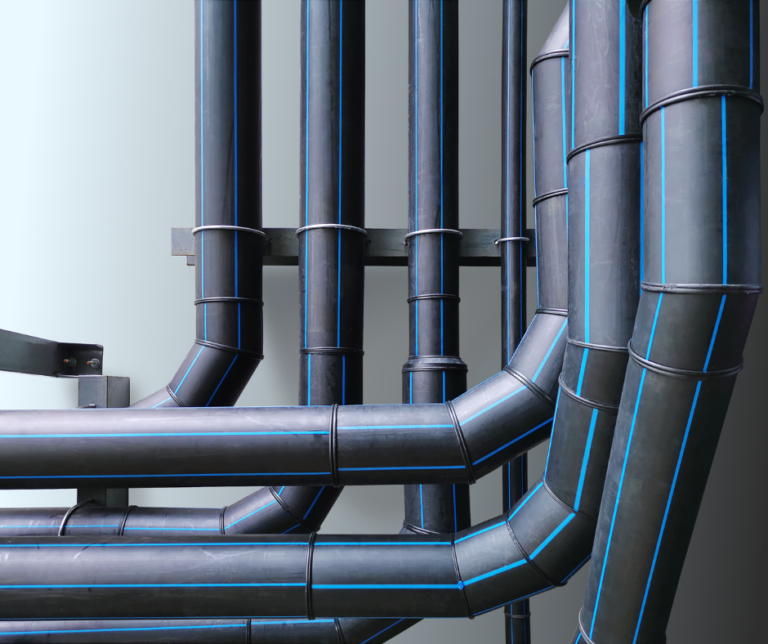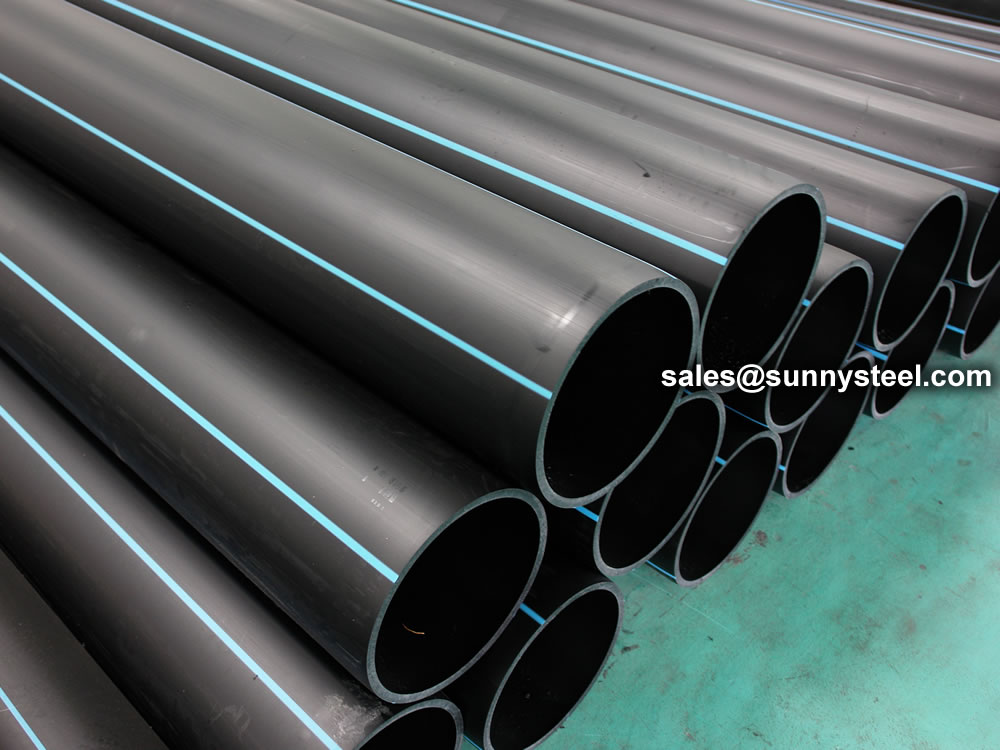Understanding the Trick Benefits of HDPE Pipe for Water and Wastewater Management
Using HDPE pipe in water and wastewater management offers numerous advantages that merit factor to consider. Its exceptional longevity and long life expectancy make it a recommended option for lots of jobs. Additionally, the product's resistance to deterioration and chemical damage improves its reliability in different settings. The benefits expand beyond just durability and resistance. custom hdpe pipe manufacturing Midland TX. Exploring its cost-effectiveness and ecological influence exposes also more compelling factors for its extensive fostering in modern facilities
Extraordinary Sturdiness and Longevity

HDPE pipe sticks out for its remarkable durability and longevity, making it a preferred choice in water management systems. Built from high-density polyethylene, these pipes can hold up against significant stress and anxiety, making certain dependable performance gradually. Their robust nature enables them to sustain extreme environmental conditions, consisting of temperature level fluctuations and soil motions, which can create other materials to fail.
The lifespan of HDPE pipes commonly goes beyond 50 years, supplying an economical option for municipalities and industries alike. Additionally, the material's lightweight buildings simplify installment, decreasing labor expenses and timeframes. This durability minimizes the requirement for constant repairs or replacements, additionally boosting its financial charm.
In water administration applications, the dependability of HDPE pipelines indicates less disturbances and enhanced solution connection, making them indispensable to lasting framework advancement. The mix of durability and durability solidifies HDPE's role as a foundation in efficient water management solutions.

Resistance to Corrosion and Chemical Damages
While lots of materials succumb to corrosion and chemical damages gradually, HDPE pipelines display impressive resistance, making them perfect for various water management applications. This resilience comes from the molecular structure of high-density polyethylene, which is naturally non-reactive and does not rust like metals or deteriorate from exposure to extreme chemicals. Because of this, HDPE is very effective in environments with hostile materials, such as wastewater systems that might include acids, bases, and organic solvents.
In addition, HDPE pipes can hold up against environmental factors such as soil acidity and saline problems, additionally enhancing their viability for diverse applications (hdpe pipe fittings Midland TX). Their capability to keep structural stability over time minimizes the risk of leakages and failings, which is vital in making sure the safety and integrity of water circulation and wastewater administration systems. The resistance to corrosion and chemical damage markedly contributes to the general efficiency and long life of HDPE piping remedies.
Cost-Effectiveness and Economic Benefits
When taking into consideration the economic effects of water monitoring systems, the cost-effectiveness of HDPE pipes becomes apparent. These pipes use reduced installation and maintenance prices compared to conventional products like metal or concrete. Their lightweight nature streamlines transport and installation, leading to decreased labor costs. Additionally, HDPE pipelines display a lengthy life-span, commonly surpassing half a century, which converts to fewer replacements and long-term financial savings.
In addition, the resistance of HDPE to deterioration and chemical damages reduces the requirement for expensive repair services and replacements. The pipelines also sustain reliable water circulation, decreasing energy expenses connected with pumping systems. By alleviating leaks and water loss, HDPE pipes contribute to substantial financial benefits for districts and industries alike. In general, the initial financial investment in HDPE piping can produce considerable economic returns over the lifespan of the water management Extra resources system, making it a prudent option for sustainable facilities development.
Ecological Sustainability and Decreased Impact

Convenience and Adaptability in Setup
Due to their one-of-a-kind residential properties, HDPE pipelines offer exceptional flexibility and adaptability in installment, making them suitable for a variety of applications. Their light-weight nature permits simpler handling and transport, reducing labor costs and installation time. HDPE pipelines can be bent and shaped to fit various terrains and task demands, which is specifically beneficial in challenging atmospheres.
In addition, their resistance to corrosion and chemical damages permits installation in diverse settings without the demand for specialized protective layers. The capability to fuse joints creates a constant, leak-free system, boosting the general integrity and dependability of the setup. HDPE's adaptability likewise fits ground motion, reducing the threat of damage in areas vulnerable to changing soil. Generally, these attributes make HDPE pipes not only flexible but additionally a favored option for water and wastewater monitoring systems.
Often Asked Concerns
Just How Does HDPE Pipeline Compare to PVC in Water Management Applications?
HDPE pipeline supplies premium versatility, resistance to rust, and sturdiness contrasted to PVC. Its lighter weight assists in much easier installation, while its lengthy life expectancy lowers substitute expenses, making HDPE a favored option in water monitoring applications.
What Is the Life-span of HDPE Pipeline Under Typical Conditions?
Under typical conditions, HDPE pipelines can have a lifespan ranging from to 4 pvc reducer 50 to 100 years. Their sturdiness and resistance to deterioration add to their lasting efficiency in numerous applications, making them a reputable option for framework.
Are HDPE Pipes Recyclable After Their Service Life?
Yes, HDPE pipes are recyclable after their solution life. hdpe pipe in stock Midland TX. They can be processed and repurposed into new items, significantly reducing environmental effect and advertising sustainability within the sector, making them an environment-friendly option for piping solutions
What Is the Setup Process for HDPE Piping?
The installation procedure for HDPE pipes includes site prep work, trenching, pipe fusion or mechanical joining, backfilling, and pressure testing. Appropriate techniques guarantee a resilient and effective system for transferring water and wastewater efficiently.
Can HDPE Pipeline Be Utilized for Both Safe And Clean and Non-Potable Water Equipments?
Yes, HDPE pipes can be utilized for both safe and clean and non-potable water systems. Their adaptability, sturdiness, and resistance to corrosion make them suitable for various applications, making sure safe and efficient transportation of water in different contexts.